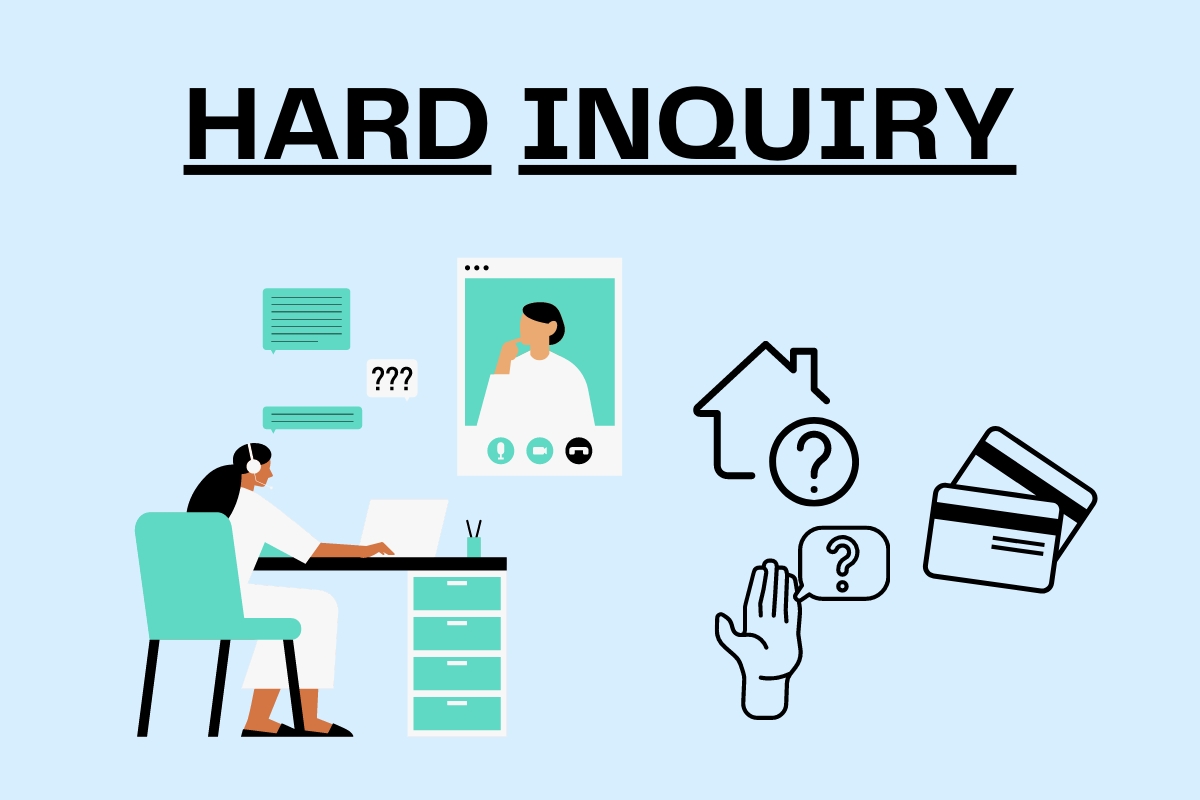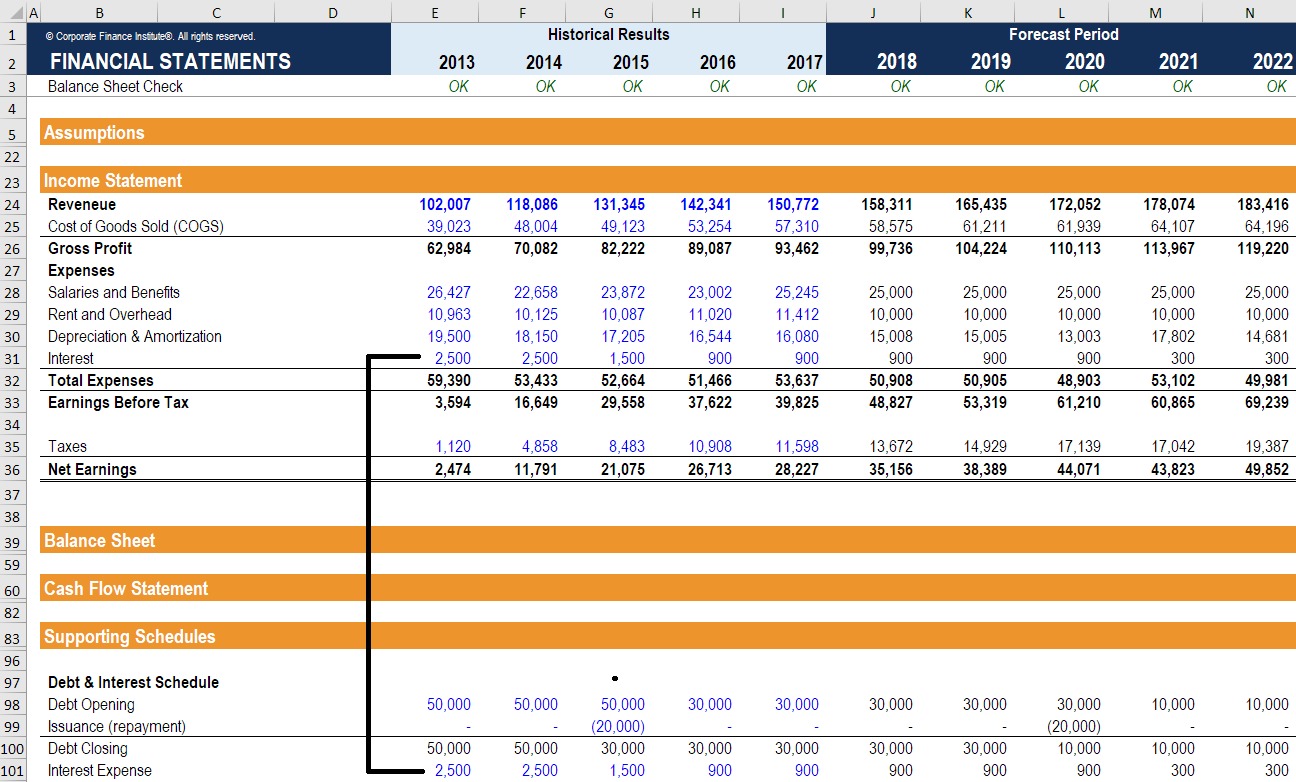

Finance
How To Get Hard Inquiries Off My Credit
Published: January 8, 2024
Learn how to remove hard inquiries from your credit report and improve your financial standing. Take control of your finances with our expert tips and strategies.
(Many of the links in this article redirect to a specific reviewed product. Your purchase of these products through affiliate links helps to generate commission for LiveWell, at no extra cost. Learn more)
Table of Contents
- Introduction
- Understanding Hard Inquiries
- Impact of Hard Inquiries on Your Credit Score
- How Long Do Hard Inquiries Stay on Your Credit Report
- Steps to Remove Hard Inquiries from Your Credit Report
- Method 1: Dispute Inaccurate Hard Inquiries
- Method 2: Negotiate with Creditors or Collection Agencies
- Method 3: Request a Goodwill Adjustment
- Method 4: Use a Credit Repair Service
- Method 5: Wait for Hard Inquiries to Drop Off Naturally
- Conclusion
Introduction
Welcome to the world of credit and finance, where the decisions you make today can have a lasting impact on your financial future. One crucial aspect of managing your credit is understanding and effectively dealing with hard inquiries. In this article, we will explore the concept of hard inquiries, their effect on your credit score, and most importantly, how to get them off your credit report.
Hard inquiries occur when a lender or creditor pulls your credit report in response to an application for credit, such as a loan or credit card. These inquiries are different from soft inquiries, which are initiated by you or a company for non-credit-related purposes, such as background checks or pre-approved offers.
While hard inquiries are necessary for lenders to assess your creditworthiness, too many of them can have a negative impact on your credit score. Each hard inquiry typically lowers your score by a few points, though the exact impact may vary depending on your overall credit history.
It’s crucial to note that not all hard inquiries are within your control. For example, when you apply for a mortgage or a car loan, multiple lenders may pull your credit report within a short period, and this is considered one inquiry, assuming they are all related to the same purpose. On the other hand, if you apply for multiple credit cards within a short time frame, each application may result in a separate hard inquiry.
Now, let’s delve deeper into the impact of hard inquiries on your credit score and the various methods you can use to remove them from your credit report. By understanding the process and taking the necessary steps, you can work towards maintaining a healthy credit profile and achieving your financial goals.
Understanding Hard Inquiries
When it comes to managing your credit, it’s important to understand what hard inquiries are and how they differ from other types of credit inquiries. Hard inquiries occur when a lender or financial institution evaluates your creditworthiness in response to a credit application you have made. These inquiries provide lenders with an insight into your credit history, allowing them to assess the risk of extending credit to you.
It’s important to distinguish hard inquiries from soft inquiries, as they have different implications for your credit score. Soft inquiries, also known as “soft pulls,” occur when you or a company requests your credit report for non-lending purposes, such as background checks or pre-approval offers. Unlike hard inquiries, soft inquiries do not impact your credit score.
Hard inquiries, on the other hand, can have a temporary negative effect on your credit score. Each hard inquiry typically lowers your score by a few points, but the impact may vary depending on your overall credit history and the number of recent inquiries.
It’s worth noting that not all hard inquiries are created equal. There are two types of hard inquiries: voluntary and involuntary. Voluntary hard inquiries occur when you initiate a credit application, such as applying for a credit card, mortgage, or auto loan. Involuntary hard inquiries, on the other hand, happen when lenders or financial institutions pull your credit report without your knowledge or consent, such as when conducting background checks or pre-screening for credit offers.
While voluntary hard inquiries are expected and necessary when applying for credit, it’s important to be mindful of the frequency and timing of your applications. Applying for multiple credit accounts within a short period can raise red flags to lenders and may negatively impact your creditworthiness.
Understanding the nature of hard inquiries and how they affect your credit score is the first step toward managing and minimizing their impact. In the next sections, we will explore the duration of hard inquiries on your credit report, as well as the various methods you can use to remove them and improve your credit profile.
Impact of Hard Inquiries on Your Credit Score
Hard inquiries play a significant role in determining your creditworthiness, and their presence on your credit report can affect your credit score. Understanding how hard inquiries impact your score is essential for managing your credit effectively.
Each hard inquiry typically has a small negative impact on your credit score, typically reducing it by a few points. However, the exact impact can vary depending on factors such as your overall credit history, the number of inquiries, and the timing of those inquiries.
One of the primary concerns with hard inquiries is that they may appear as a sign of increased risk to lenders. Multiple recent inquiries can suggest that you are actively seeking credit, which may raise concerns about your ability to handle additional debt. This can result in lenders perceiving you as a higher credit risk, potentially leading to increased interest rates, stricter loan terms, or even loan denial.
It’s important to note that the impact of hard inquiries on your credit score is typically temporary. While they can affect your score for a period of time, their significance diminishes over time, especially if you manage your credit responsibly and maintain a positive payment history.
In addition to the number and timing of inquiries, the impact of hard inquiries can also depend on other factors, such as the presence of other positive credit information on your report. For example, if you have a strong credit history with a low utilization ratio and a long-standing credit history, the impact of a few hard inquiries may be minimal in comparison.
To mitigate the potential negative impact of hard inquiries, it’s important to be strategic and deliberate when applying for credit. Only apply for credit that you genuinely need and are confident you can manage responsibly. Additionally, spacing out your credit applications over time can help minimize the impact of multiple inquiries appearing simultaneously on your credit report.
Now that we understand how hard inquiries can impact your credit score, let’s explore how long they stay on your credit report and the various methods you can use to remove them.
How Long Do Hard Inquiries Stay on Your Credit Report
One common question many individuals have regarding hard inquiries is how long they will remain on their credit report. The duration of time that hard inquiries stay on your credit report varies based on a few factors.
Typically, hard inquiries can remain on your credit report for up to two years. However, it’s important to note that the impact of hard inquiries on your credit score diminishes with time.
For the first 12 months, hard inquiries may have a noticeable effect on your credit score. Lenders and creditors reviewing your credit report during this time can see the inquiries and take them into account when evaluating your creditworthiness.
After the initial 12 months, the impact of hard inquiries starts to lessen. While they still appear on your credit report, their influence on your credit score becomes less significant. This is good news for individuals who are concerned about the potential negative impact of hard inquiries.
It’s important to note that although hard inquiries remain on your credit report for up to two years, their impact on your credit score is usually only significant for the first year. Therefore, if you’re applying for new credit, it’s wise to space out your applications to minimize the potential negative impact on your credit score.
Furthermore, it’s worth mentioning that not all hard inquiries are treated equally. When calculating your credit score, credit bureaus typically group multiple inquiries of the same type within a specific time frame as one inquiry. This means that if you’re shopping around for the best interest rates on a mortgage or auto loan, multiple inquiries within a certain period (usually around 30 days) are usually counted as a single inquiry. This allows you to compare offers without worrying about multiple inquiries negatively affecting your credit score.
Understanding the duration of hard inquiries on your credit report is important when managing your credit and planning for future credit applications. Now, let’s delve into the different methods you can use to remove hard inquiries from your credit report and improve your credit profile.
Steps to Remove Hard Inquiries from Your Credit Report
If you have hard inquiries on your credit report that you believe are inaccurate or no longer relevant, there are steps you can take to have them removed. While there is no guarantee of success, following these methods can increase your chances of removing unwanted hard inquiries:
- Method 1: Dispute Inaccurate Hard Inquiries: Start by reviewing your credit report and identifying any inquiries that you believe are inaccurate or unauthorized. You can dispute these inquiries directly with the credit bureaus, providing evidence to support your claim. The credit bureaus have 30 days to investigate and respond to your dispute.
- Method 2: Negotiate with Creditors or Collection Agencies: If you recognize the validity of the hard inquiries but want them removed, you can contact the creditors or collection agencies associated with the inquiries. In some cases, they may be willing to remove the inquiries as a goodwill gesture, especially if you are making efforts to resolve any outstanding debts.
- Method 3: Request a Goodwill Adjustment: If you have a good relationship with a creditor, such as a long-standing credit card issuer, you can write a goodwill letter asking them to remove the hard inquiry. Explain the circumstances that led to the inquiry and emphasize your positive payment history. While it’s not guaranteed, some creditors may grant your request as a goodwill gesture.
- Method 4: Use a Credit Repair Service: If you’re struggling to remove hard inquiries on your own, you may consider working with a reputable credit repair service. These companies specialize in resolving credit report issues and can assist you in disputing inaccurate inquiries and navigating the process.
- Method 5: Wait for Hard Inquiries to Drop Off Naturally: Remember that hard inquiries have a diminishing impact on your credit score over time, and they automatically fall off your credit report after two years. If your primary concern is improving your credit score, you can be patient and let the inquiries naturally expire.
It’s important to note that there is no quick-fix solution for removing hard inquiries. It requires persistence, time, and careful management of your credit. Additionally, be cautious of fraudulent companies claiming to be able to remove inquiries for a fee. These companies often engage in unethical practices and can further harm your credit.
By following these steps and staying proactive in managing your credit, you can improve the chances of removing unwanted hard inquiries and maintaining a healthy credit profile.
Method 1: Dispute Inaccurate Hard Inquiries
If you believe that one or more hard inquiries on your credit report are inaccurate or unauthorized, you have the right to dispute them and request their removal. Here’s how you can go about disputing inaccurate hard inquiries:
- Obtain your credit report: Start by obtaining a copy of your credit report from each of the major credit bureaus – Experian, Equifax, and TransUnion. You are entitled to one free copy of your credit report from each bureau per year, which you can request from AnnualCreditReport.com.
- Review your credit report: Carefully review your credit report to identify the inaccurate or unauthorized hard inquiries. Make note of the specific inquiries that you believe are incorrect or shouldn’t be on your report.
- Gather supporting documentation: Collect any relevant documentation that supports your claim of inaccuracies or unauthorized inquiries. This could include letters or emails from the creditor stating that you did not apply for credit with them or any other evidence that proves the incorrectness of the inquiries.
- Dispute the inquiries with the credit bureaus: Write a formal dispute letter to each of the credit bureaus reporting the inaccurate inquiries. In your letter, clearly explain which inquiries are incorrect or unauthorized and provide the supporting documentation. Include your name, address, social security number, and a clear request for the removal of the disputed inquiries.
- Follow up and track the progress: Keep track of the dates and details of your dispute letters. The credit bureaus have 30 days to investigate your dispute and respond to it. During this time, they will contact the creditor or collection agency reporting the inquiry and request verification of its accuracy.
- Review the updated credit report: Once the investigation is complete, review your updated credit report to see if the disputed inquiries have been removed. If the credit bureaus determine that the inquiries are indeed inaccurate or unauthorized, they will remove them from your credit report.
It’s important to be diligent and persistent when disputing inaccurate inquiries. Follow up regularly with the credit bureaus to ensure your dispute is being processed, and keep copies of all communication for your records.
Remember that if the credit bureaus do not find sufficient evidence to support your claim, they may not remove the inquiries. In such cases, you may need to explore alternative methods or seek professional assistance to further pursue the removal of inaccurate hard inquiries.
Disputing inaccurate hard inquiries is an effective and legitimate way to clean up your credit report and improve your creditworthiness. By taking the necessary steps and providing supporting documentation, you can increase your chances of getting those undesired inquiries removed from your credit history.
Method 2: Negotiate with Creditors or Collection Agencies
If you have legitimate hard inquiries on your credit report but want to have them removed, you can try negotiating with the creditors or collection agencies associated with those inquiries. Although there is no guarantee of success, here are the steps you can take to negotiate the removal of these inquiries:
- Identify the creditors or collection agencies: Review your credit report and identify the entities responsible for the hard inquiries you wish to remove. Take note of their contact information, including phone numbers and addresses.
- Contact the creditors or collection agencies: Reach out to the creditors or collection agencies associated with the inquiries. You can do this by calling the customer service number provided on your credit report or by sending a written request via certified mail.
- Explain your situation: Clearly explain your situation and the reason for your request to remove the inquiries. If there were extenuating circumstances or errors involved, provide any relevant details to support your case.
- Negotiate a deal: Engage in open communication and negotiate with the creditors or collection agencies. Express your willingness to resolve any outstanding debts or commitments with them, such as paying off a remaining balance. In return, kindly request the removal of the associated hard inquiries as a goodwill gesture.
- Get the agreement in writing: If you reach a favorable agreement with the creditors or collection agencies, request that they provide written confirmation of the arrangement. This will serve as proof of the agreement and ensure consistency in their records and your credit report.
- Monitor your credit report: After reaching an agreement, regularly monitor your credit report to ensure that the negotiated inquiries are being removed. It may take some time for these changes to be reflected on your report, so be patient and vigilant.
While negotiating with creditors or collection agencies can be time-consuming and may not always result in the removal of hard inquiries, it is worth attempting. Some creditors or agencies may be willing to work with you to improve your credit profile, especially if you can offer some resolution to any outstanding debt or financial obligations.
Remember to approach the negotiations with a polite and respectful manner. Being proactive, persistent, and professional in your communication can increase your chances of reaching a successful resolution.
If negotiating directly with the creditors or collection agencies proves unsuccessful, you may consider seeking the assistance of a credit counseling agency or a reputable credit repair service. These professionals can advocate on your behalf and provide guidance on how to handle the disputed inquiries.
Keep in mind that it is important to be cautious of fraudulent companies that may promise to remove inquiries for a fee. Legitimate creditors and collection agencies will not charge you for the removal of inquiries. Always exercise caution and do thorough research before engaging with any third-party service providers.
By being proactive and persistent, you may succeed in negotiating the removal of hard inquiries, thus improving your credit report and creditworthiness in the long run.
Method 3: Request a Goodwill Adjustment
If you have legitimate hard inquiries on your credit report but want to have them removed as a gesture of goodwill, you can try requesting a goodwill adjustment from the creditors or lenders. While not guaranteed, some companies may be willing to remove the inquiries upon your request. Follow these steps to request a goodwill adjustment:
- Identify the relevant creditors or lenders: Review your credit report to identify the companies associated with the hard inquiries you want to remove. Take note of their contact information, including phone numbers and addresses.
- Write a goodwill letter: Craft a well-written letter to each creditor or lender explaining your situation and why you are requesting the removal of the hard inquiries. Be honest and sincere in your appeal, emphasizing any extenuating circumstances that may have led to the inquiries.
- Highlight your positive payment history: In your letter, emphasize your positive payment history with the company. If you have been a long-standing customer or have consistently made your payments on time, mention these details to reinforce your credibility as a responsible borrower.
- Express your commitment to maintaining good credit: Demonstrate your commitment to maintaining good credit by explaining your efforts to improve your financial situation. If applicable, mention any steps you have taken to pay off debts or improve your overall financial stability.
- Submit your goodwill letter: Send your goodwill letter to the respective creditors or lenders via certified mail with a return receipt. This ensures proof of receipt and demonstrates your seriousness in pursuing the request.
- Follow up appropriately: Allow the company some time to consider your request and follow up after a reasonable period. Give them a call or send an additional letter as a gentle reminder if you don’t receive a response within a few weeks.
- Monitor your credit report: Regularly monitor your credit report to see if the requested goodwill adjustments are reflected. It may take some time for the changes to occur, so be patient and check periodically.
It’s important to note that goodwill adjustments are discretionary, and not all creditors or lenders will grant your request. However, it is still worth the effort to reach out and make a respectful appeal for the removal of the hard inquiries.
Remember to keep your tone polite, respectful, and appreciative, as this can greatly influence the likelihood of a favorable response. While there is no guarantee of success, some companies may be willing to accommodate your request, particularly if you have a long history with them or have shown commitment to improving your credit standing.
If your initial attempts to request a goodwill adjustment are unsuccessful, consider exploring other methods or seeking assistance from credit counseling agencies or reputable credit repair services. These professionals can provide guidance tailored to your specific situation and help you navigate the process.
Keep in mind that it’s important to proceed cautiously and avoid falling prey to companies that promise guaranteed removal of inquiries for a fee. Always research and verify the legitimacy of any service provider before engaging their services.
By making a genuine appeal and demonstrating your commitment to maintaining good credit, you may succeed in having the hard inquiries removed through a goodwill adjustment.
Method 4: Use a Credit Repair Service
If you’re facing challenges in removing hard inquiries from your credit report on your own, you may consider leveraging the expertise of a reputable credit repair service. Credit repair services are professionals who specialize in helping individuals improve their credit profiles and remove negative items, including hard inquiries. Here’s how a credit repair service can assist you:
Evaluation of your credit report: A credit repair service will start by reviewing your credit report in detail. They will identify any inaccurate, outdated, or unauthorized hard inquiries that may be negatively impacting your credit.
Dispute on your behalf: Once the credit repair service has identified the disputed hard inquiries, they will initiate the dispute process on your behalf. They will work with the credit bureaus and the entities responsible for the inquiries to provide the necessary documentation and argue for the removal of inaccurate or unauthorized inquiries.
Follow up and tracking: Credit repair services will follow up with the credit bureaus and the creditors to ensure that the disputes are being processed and that the inaccurate or unauthorized inquiries are being removed. They will keep you informed of the progress and any updates on your credit report.
Guidance on credit improvement: In addition to helping you remove hard inquiries, credit repair services can provide guidance and advice on other ways to improve your credit profile. They may offer tips on managing your credit usage, paying off debts, and establishing positive credit habits.
Utilization of credit repair techniques: Credit repair services have experience and knowledge of various credit repair techniques. They may use strategies such as debt validation, goodwill letters, and negotiation to assist in the removal of hard inquiries. These techniques can increase the effectiveness of your credit repair efforts.
When choosing a credit repair service, it’s essential to do thorough research and select a reputable and trustworthy company. Look for credit repair services with a proven track record, positive customer reviews, and transparent pricing models. Be cautious of companies that make unrealistic promises or charge exorbitant fees upfront.
While a credit repair service can provide valuable assistance, it’s important to understand that removing hard inquiries is not a guaranteed outcome. The ultimate decision to remove the inquiries lies with the credit bureaus and the entities responsible for reporting them. However, a credit repair service can significantly increase your chances of success and make the process more manageable.
It’s important to note that you can also attempt to remove hard inquiries on your own by following the methods outlined in this article. However, if you find the process overwhelming or lack the time and expertise to handle it yourself, a credit repair service can be a beneficial resource to consider.
By collaborating with a reputable credit repair service, you can navigate the intricacies of removing hard inquiries and make strides towards improving your credit profile.
Method 5: Wait for Hard Inquiries to Drop Off Naturally
If you’re not able to dispute or negotiate the removal of hard inquiries, another method is to simply wait for them to drop off your credit report naturally. Hard inquiries have a limited duration and will eventually be removed from your report. Here’s what you need to know about this method:
Timeline for removal: Hard inquiries typically remain on your credit report for up to two years from the date they were made. During this time, they may impact your credit score, although the effect diminishes over time. After the two-year period, hard inquiries are automatically removed from your credit report.
Diminishing impact over time: While hard inquiries may initially have a noticeable impact on your credit score, their significance decreases as they age. Credit scoring models place more emphasis on recent credit activities rather than past inquiries, so the impact of older inquiries becomes less significant over time.
Patience as a strategy: If the hard inquiries on your credit report are accurate and not causing any significant harm, you can choose to be patient and let them naturally drop off. This method requires time and patience, especially if you have multiple hard inquiries on your report.
Focus on building positive credit habits: While waiting for the hard inquiries to be removed, focus on building positive credit habits. Make timely payments, keep your credit utilization low, and avoid applying for unnecessary credit. These habits will contribute to improving your credit score over time, offsetting the temporary impact of the inquiries.
Waiting for hard inquiries to drop off naturally may be a suitable option if the inquiries aren’t severely impacting your creditworthiness or if you’re unable to pursue other removal methods. However, keep in mind that this method requires patience, as it can take some time for the inquiries to be removed from your credit report.
It’s important to regularly monitor your credit report to ensure that the inquiries are being removed once the two-year timeline has passed. If any inquiries remain on your report beyond the expected duration, you may consider contacting the credit bureaus or the entities responsible for reporting the inquiries to seek clarification and request their removal.
Remember, the best approach to managing your credit is to practice responsible borrowing habits and maintain a positive credit history over time. By doing so, the impact of hard inquiries will gradually diminish, and you’ll be on the path to building a strong credit profile.
Conclusion
Managing hard inquiries on your credit report is an essential part of maintaining a healthy credit profile. While these inquiries may have a temporary impact on your credit score, there are steps you can take to remove or mitigate their effects.
Understanding the nature of hard inquiries, their impact on credit scores, and their duration on your credit report is crucial. By being aware of these factors, you can make informed decisions and take appropriate actions to improve your creditworthiness.
The methods discussed in this article offer various approaches to handling hard inquiries. Disputing inaccurate inquiries, negotiating with creditors, requesting goodwill adjustments, utilizing credit repair services, and waiting for inquiries to drop off naturally are all viable options to explore.
Remember, the results of these methods may vary, and there is no guaranteed outcome. It’s important to be proactive, persistent, and patient throughout the process. Regularly monitoring your credit report, maintaining positive payment habits, and being mindful of your credit applications can help you manage hard inquiries more effectively.
Additionally, always exercise caution and be wary of fraudulent companies promising guaranteed results or charging excessive fees. Research reputable credit repair services and seek advice from credit counseling agencies if needed.
Ultimately, the goal is to maintain a healthy credit profile and demonstrate responsible credit management. By taking the necessary steps to remove or reconcile hard inquiries, you can improve your creditworthiness, qualify for better loan terms and interest rates, and achieve your financial goals.
Remember, managing hard inquiries is just one aspect of responsible credit management. It’s equally important to practice good financial habits, such as paying bills on time, keeping credit utilization low, and maintaining a diverse mix of credit accounts.
When it comes to your credit, knowledge is power. Equip yourself with the necessary information, take proactive steps to manage your credit, and be patient as you work towards a healthier financial future.














